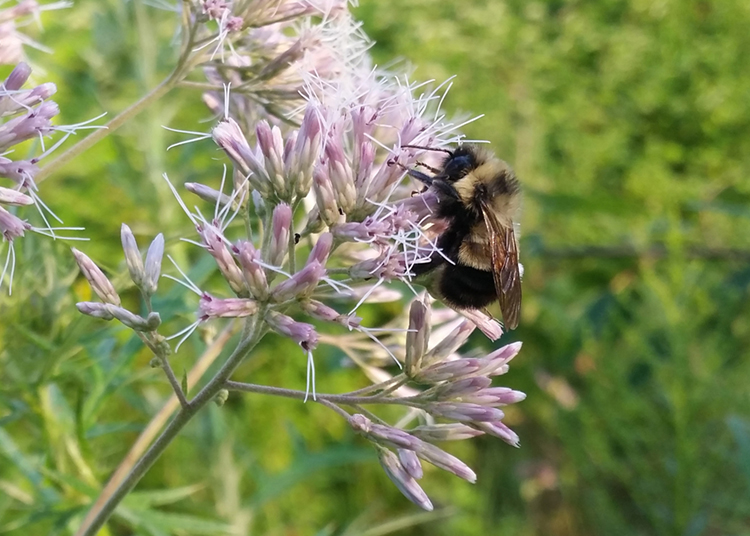Current Events Lesson Plan: January 12-18, 2017
Current Event: The Fall of Rusty Patched Bumble Bees
For the first time in the continental United States, a wild bee has been designated as an endangered species. What was once a thriving bee in the United States and Canada, the rusty patched bumble bee is now weakly carrying on in scattered populations. In the past 20 years, the insect’s population has dropped 87 percent because of habitat loss, disease, pesticides, and climate change. The bumble bee is a large, burly bee that often has mostly black-and-yellow coloring. Like most bumble bees, rusty patched bumble bees have black heads, but workers and males have a rusty reddish patch on their backs. Bumble bees are among farmers’ best friends, and protecting these insects is important. They pollinate (help fertilize) numerous wild plants and such food crops as blueberries, cranberries, clover, and tomatoes. The agriculture industry leans heavily on such native pollinators as bumble bees. Now that the rusty patched bumble bee is listed under the Endangered Species Act, the Fish and Wildlife Service must assess, protect, and help restore the insect’s population and habitat.
Objective:
Bumble bees are large, burly bees that often has mostly black and yellow coloring. They live in most countries, from the Arctic to the Antarctic. Australia and some Pacific islands had no bumble bees until people brought them there. Bumble bees are social insects. This means that they live in colonies (groups). The organization of the colony is not as complex as that of a honey bee colony. Only the queen bumble bee lives through the winter and starts a colony in the spring. During the summer, the colony may increase in size to 50 to several hundred bees. Many people fear bumble bees because of their noisy buzzing flight and long, sharp stings. Unlike honey bees, bumble bees do not die when they sting. They can sting repeatedly, but they only do so when defending their nest or when handled. The Behind the Headlines news story and related World Book articles explore bees and other animals.
Words to know:
Discussion Topics:
1. Ask your students to name animals, other than bees, that start with the letter “B”. (Students might say baboons, badgers, bald eagles, barracuda, bass, bats, bears, beavers, beetles, birds, blobfish, blue jays, blue whales, boa constrictors, boars, bobcats, buffalo, butterflies, buzzards.)
2. Ask your students to debate, “Humans have the responsibility to protect animals from extinction.”
3. Ask your students to use World Book’s Timelines feature to view or add to the Animal Extinctions Since 1600 timeline.



